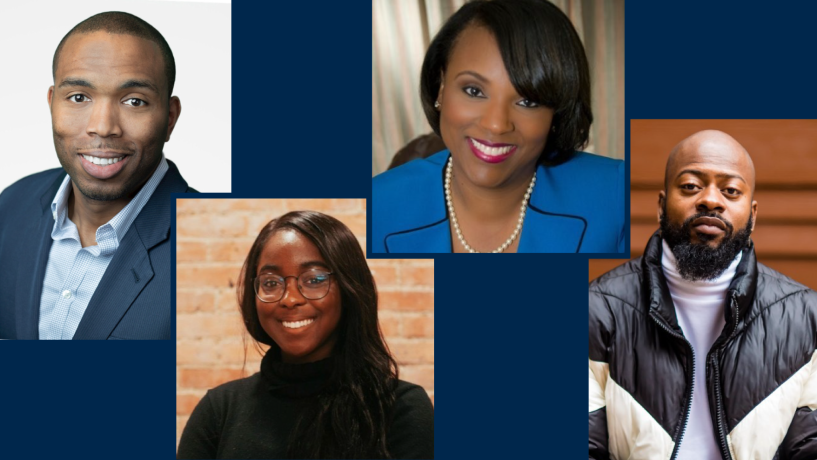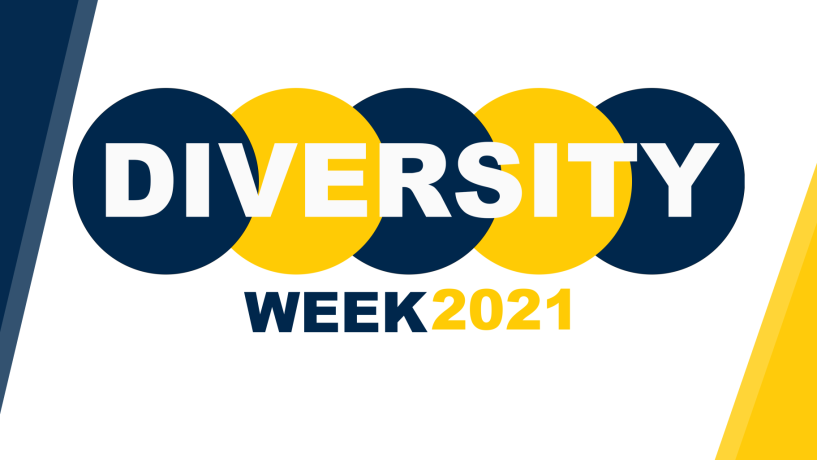Michigan Ross BBA Students Celebrate Black History Month by Recognizing Pioneering Black Individuals Who Inspire Them
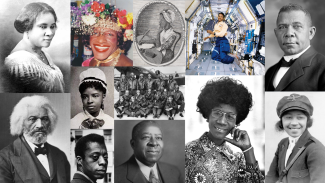
To celebrate Black History Month, a dozen members of the BBA DEI Committee at the Ross School of Business took time to reflect on the pioneering Black Americans who have inspired and motivated them in their personal and professional lives.
The BBA DEI Committee members’ reflections were shared across the Michigan Ross social media platforms throughout February to spread awareness of the inspiring individuals they wanted to recognize. Below, each BBA student provides a brief background on the person they chose and an explanation on why they selected who they did — including how they have impacted their decision to pursue a career in business.
 Mae Jemison - Sydney Williams, BBA ’22
Mae Jemison - Sydney Williams, BBA ’22
Background: On Sept. 12, 1992, Mae Jemison became the first African American woman to travel in space aboard the Endeavor. After leaving NASA she began a teaching career in higher education at Dartmouth College.
“When I was a kid my first dream job was to become an astronaut. Although my dreams have changed since then, Mae’s accomplishments in STEM still fully resonate with me as a Black woman.” - Sydney Williams, BBA ’22
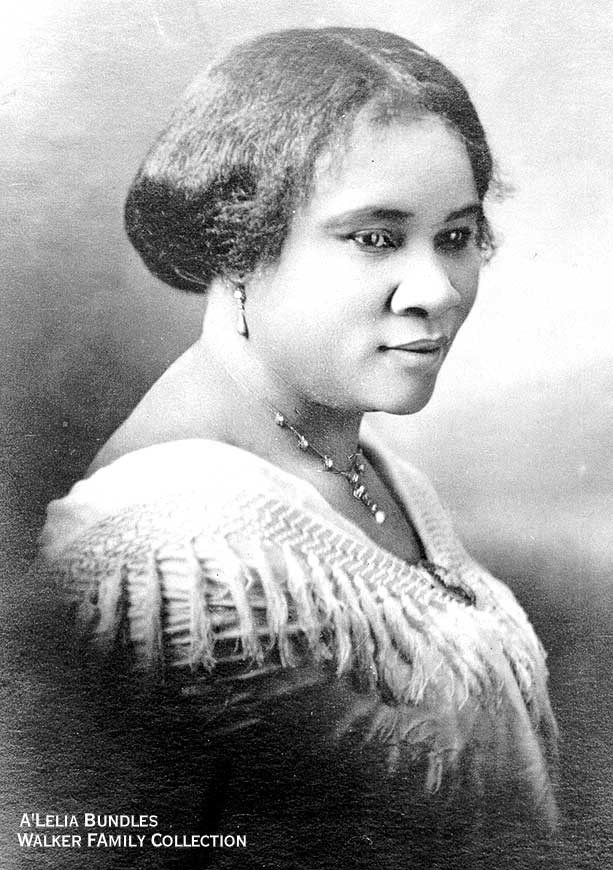 Madam C.J. Walker - Ayodele Ojo, BBA ’23
Madam C.J. Walker - Ayodele Ojo, BBA ’23
Background: Madam C.J. Walker invented a line of African American hair products after suffering from a scalp ailment that resulted in her own hair loss and she became one of the wealthiest African American women of her time. She used her wealth to advocate for anti-lynching efforts in the segregated South.
“Reading about Madam C.J. Walker’s accomplishments as a Black woman in the 1880s-1900s is so inspiring. As a future entrepreneur myself, I look up to Madam Walker as motivation to never let the obstacles of life stop me from pursuing my dreams.” - Ayodele Ojo, BBA ’23
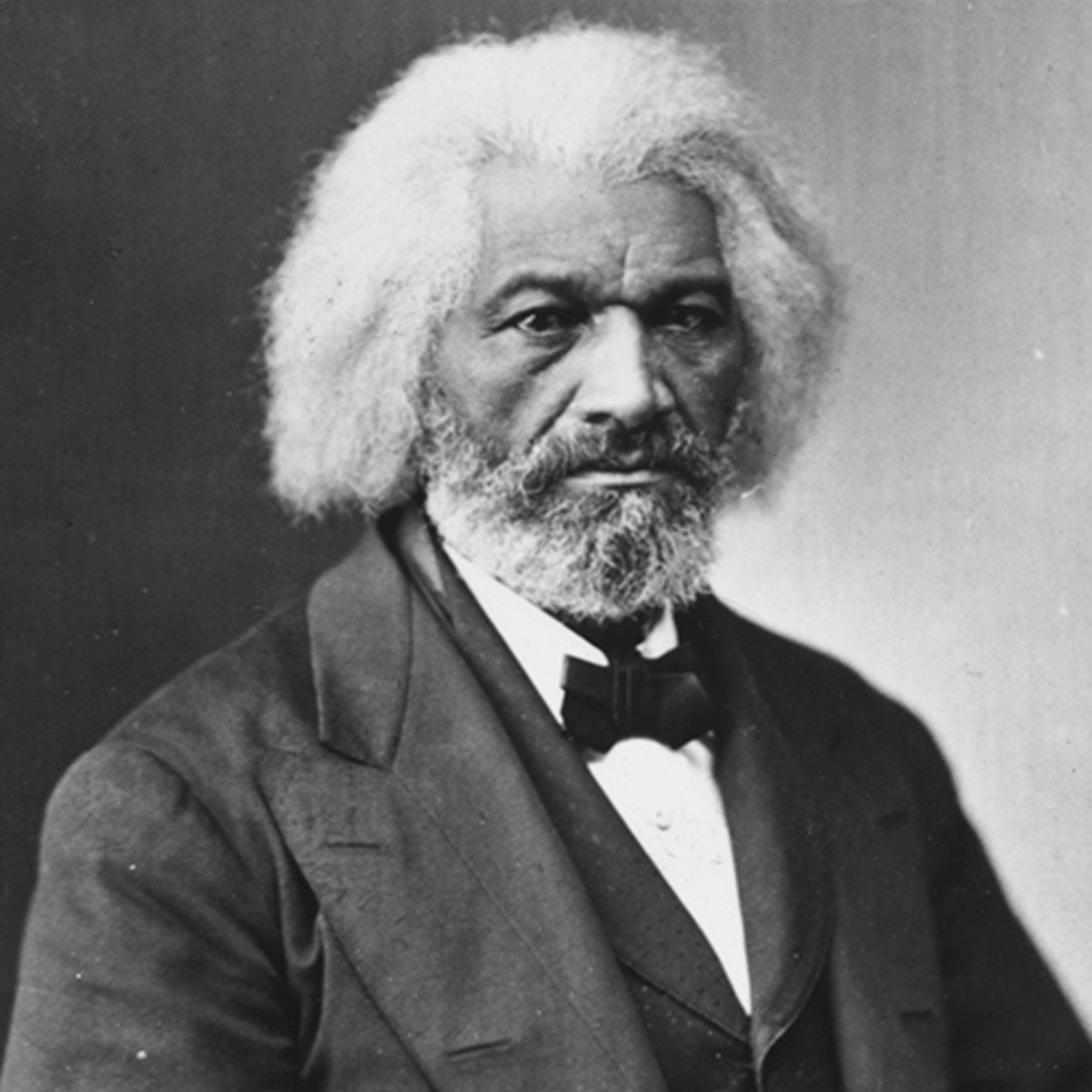 Frederick Douglass - Kayla Hurd, BBA ’22
Frederick Douglass - Kayla Hurd, BBA ’22
Background: Frederick Douglass became a leader in the abolitionist movement, which sought to end the practice of slavery, before and during the Civil War. After the war and the Emancipation Proclamation of 1862, he continued to push for equality and human rights until his death in 1895.
“Frederick Douglass is important to me because in my high school art class we created him as a life-size figure for an art display to show our appreciation for what he accomplished during his lifetime. The art display recited passages from his books and speeches, which were very monumental during his time and even today. He inspired many with his intelligence and beliefs that everyone should be treated equally.” - Kayla Hurd, BBA ’22
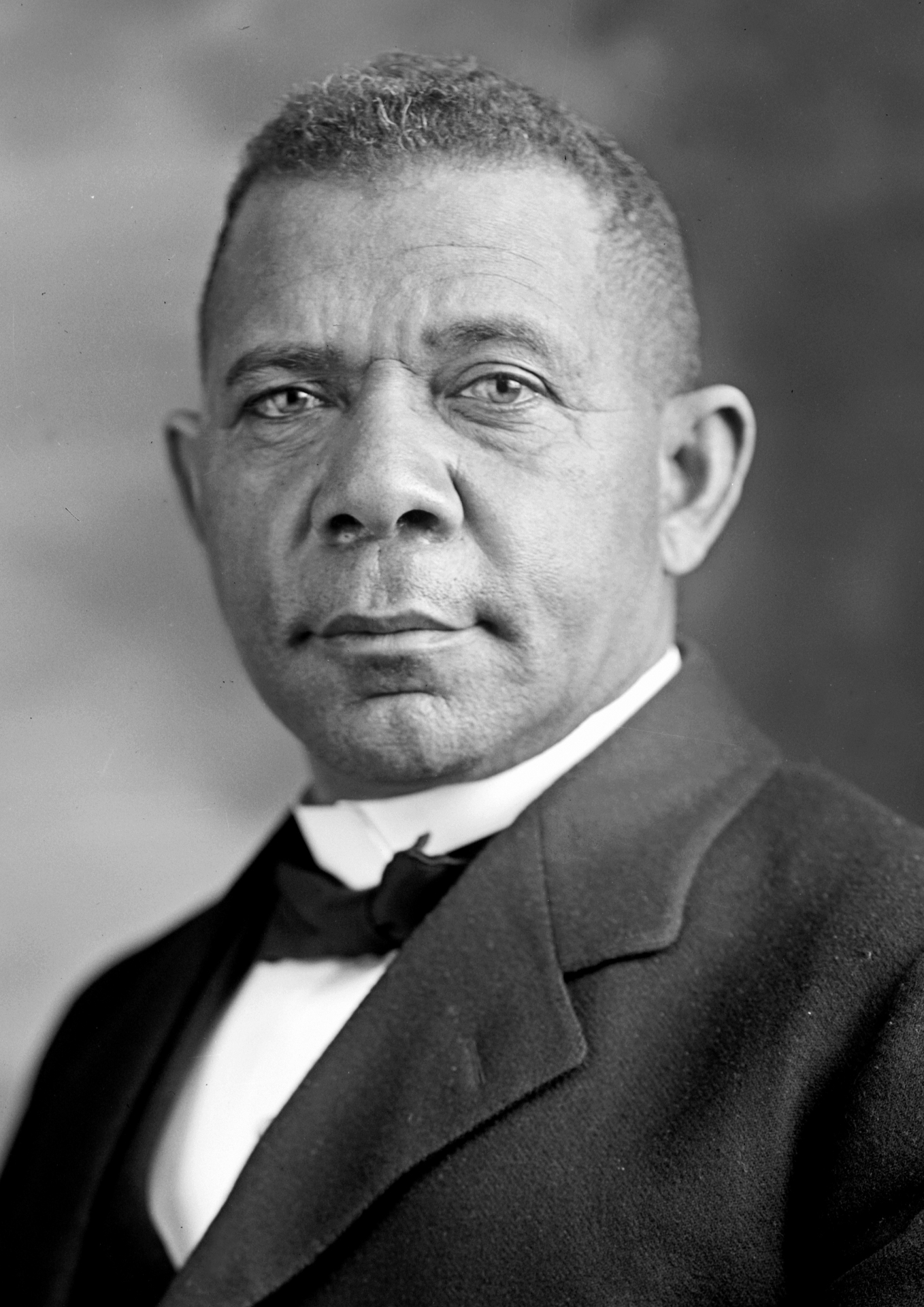 Booker T. Washington - Habib Bello, BBA ’22
Booker T. Washington - Habib Bello, BBA ’22
Background: Born a slave, Washington founded the Tuskegee Normal and Industrial Institute, which is now Tuskegee University, in 1881, and the National Negro Business League two decades later. Washington is also known for advising Presidents Theodore Roosevelt and William Howard Taft.
“Education is a privilege that many individuals unfortunately take for granted. Booker T. Washington’s determination to empower and uplift the African American education system within the 1890s, up until his death in 1915, showcases to me that the sky’s the limit for an educated Black man!” - Habib Bello, BBA ’22
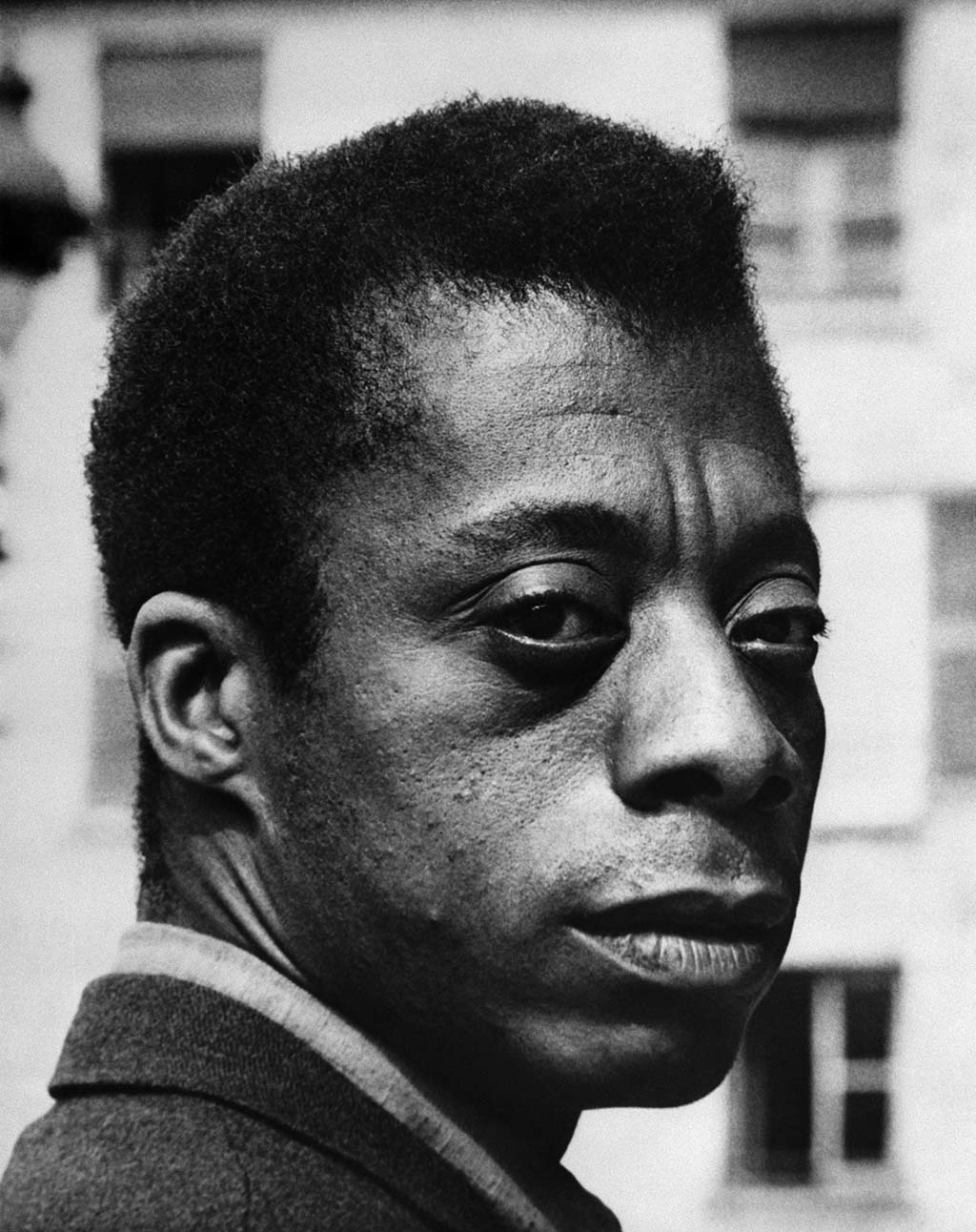 James Baldwin - Rai Fleming, BBA ’22
James Baldwin - Rai Fleming, BBA ’22
Background: A leading literary voice of the civil rights movement, Baldwin broke literary ground with the exploration of racial and social issues in his essays, poems, and novels. His themes of masculinity, sexuality, race, and class intertwine to create intricate narratives that run parallel with some of the major political movements toward social change in mid-twentieth-century America, such as the civil rights movement and the gay liberation movement
“My mother is a huge fan of James Baldwin, so I was exposed to his literary works at a young age. Baldwin was so graceful and poised, yet so strong and passionate about his beliefs. His groundbreaking literary works on social issues have truly served as an inspiration to me and I think he is an important figure in history.” - Rai Fleming, BBA ’22
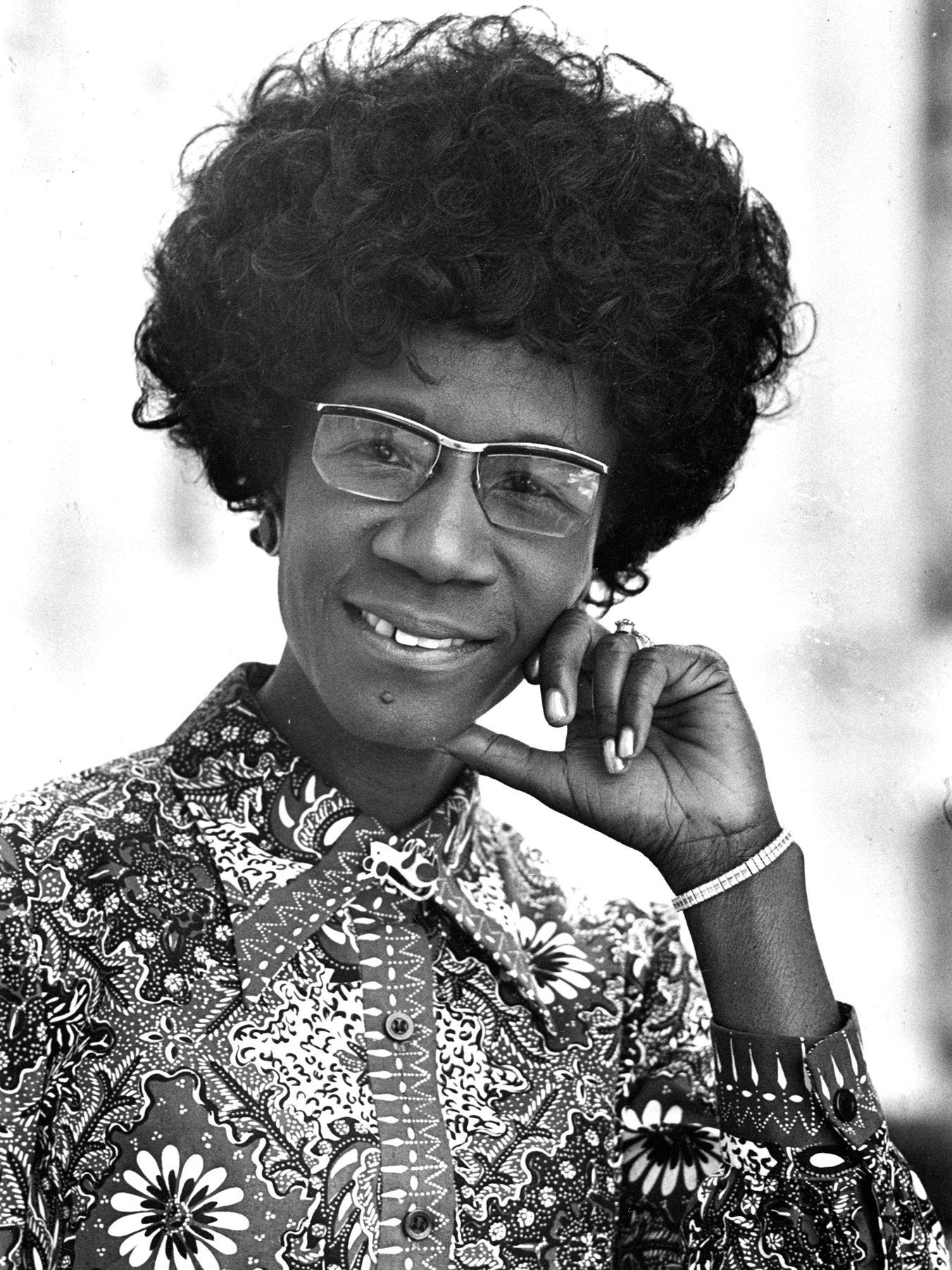 Shirley Chisholm - Brooklyn Bates, BBA ’24
Shirley Chisholm - Brooklyn Bates, BBA ’24
Background: Chisholm was the first Black woman elected to the U.S. Congress, serving from 1969 to 1983. There she became known as “Fighting Shirley,” advocating for racial and gender equality, the impoverished, and ending the Vietnam War. Chisholm famously said: “I want to be remembered as a woman … who dared to be a catalyst of change.”
“I have admired Shirley Chisholm ever since I learned about her in elementary school. She faced many challenges, but she didn’t let any of them stop her from becoming the first Black woman elected to the U.S. Congress. She serves as a reminder of the importance of civic engagement.” - Brooklyn Bates, BBA ’24
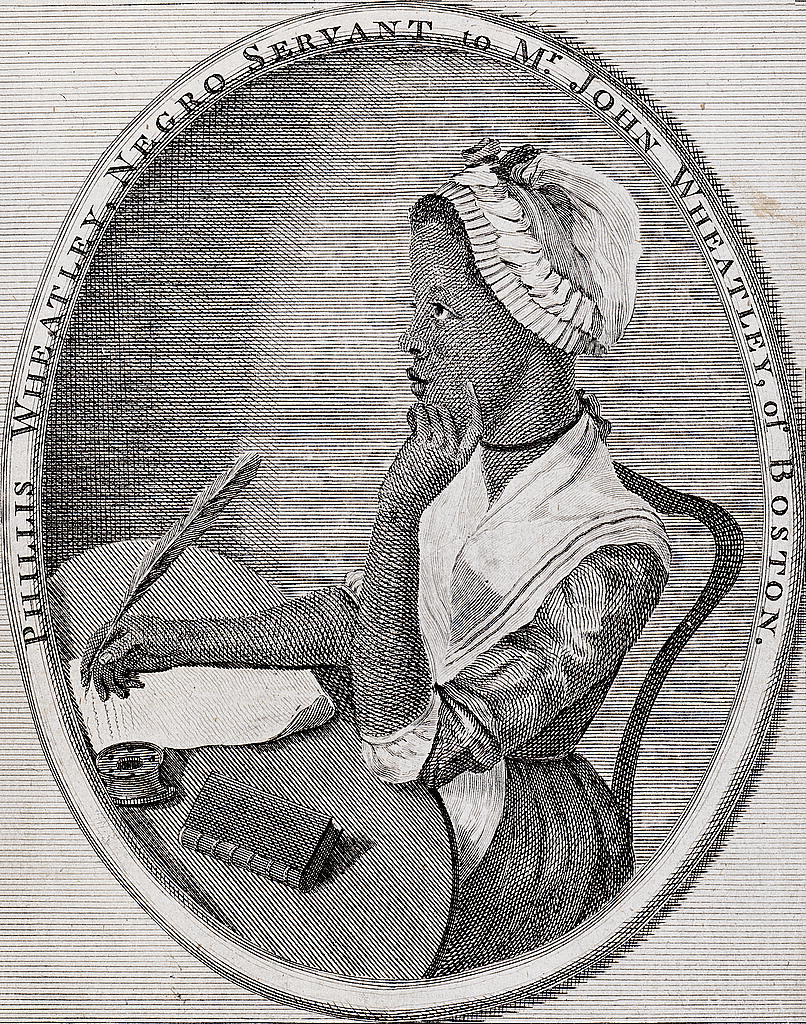 Phillis Wheatley - Leo Zamojchin, BBA ’24
Phillis Wheatley - Leo Zamojchin, BBA ’24
Background: Captured and sold into slavery at the age of 7, Wheatley would go on to write the first collection of poetry published by an African American. In 1773, her collection Poems on Various Subjects, Religious and Moral, gained immediate fame among the American colonies and in England.
“Phillis Wheatly's poetry was fundamental to African American literature and even attracted George Washington as a fan. Her work has inspired people for centuries and I'm in awe by what it took to reach that level of achievement as a Black woman in the 1700s.” - Leo Zamojchin, BBA ’24
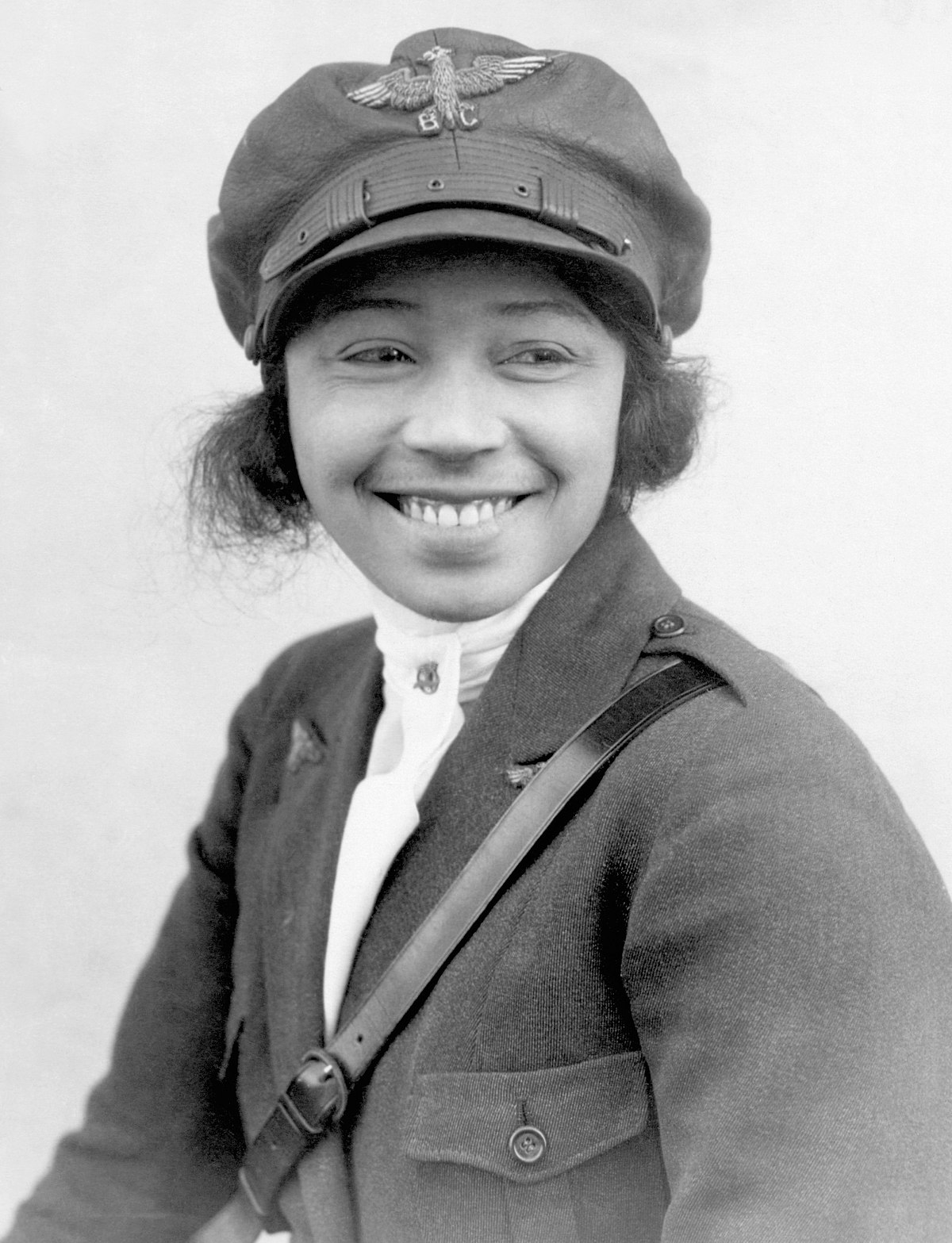 Bessie Coleman - Quinton Martin, BBA ’24
Bessie Coleman - Quinton Martin, BBA ’24
Background: Coleman was the first African American and Native American woman to receive a piloting license. Since women in the U.S. were not allowed to pursue aviation, her passion took her to France, where she received her license in 1921. In 1922, she performed the first public airshow by an African American woman.
“What I admire about Bessie Coleman is her unwavering sense of courageousness and dedication. Being the first of anything is difficult, but being the first African American and Native American woman pilot took an unprecedented amount of courage and strength. I hope to one day be able to inspire people to the great extent that Bessie Coleman did for those who followed in her footsteps.” - Quinton Martin, BBA ’24
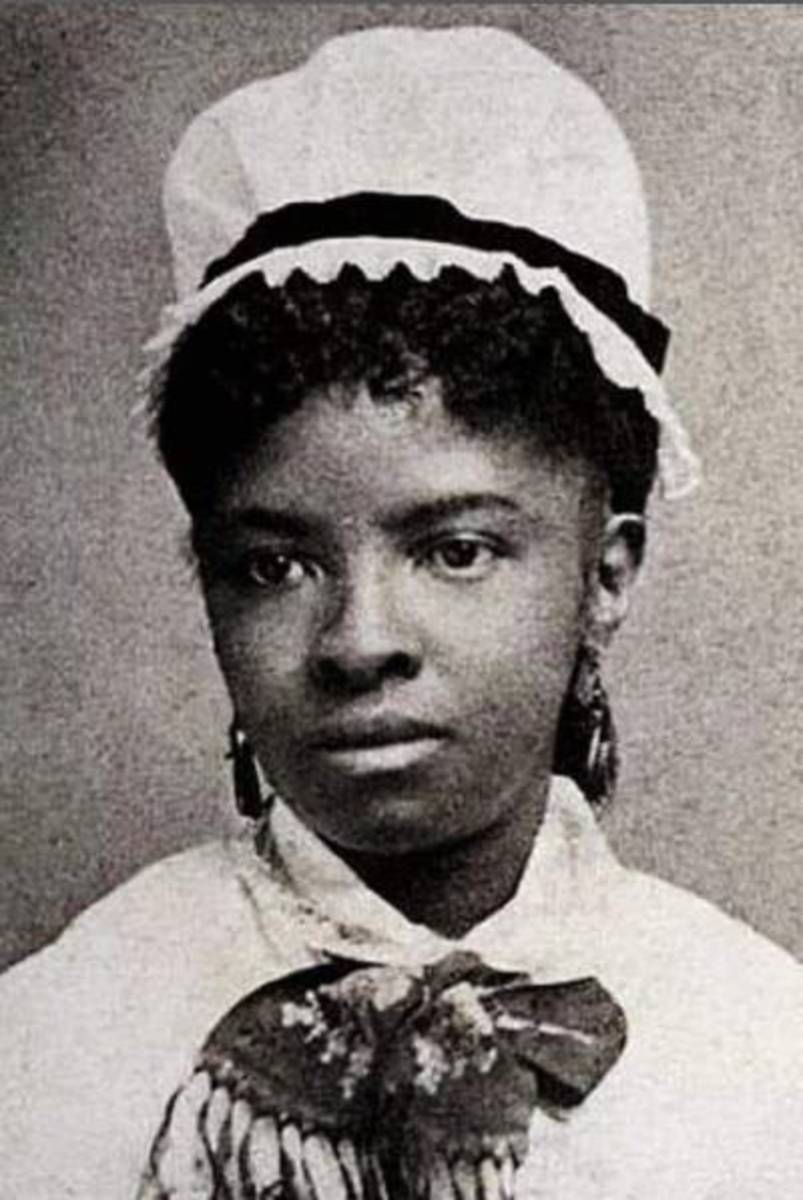 Dr. Rebecca Crumpler - Breanna Allen, BBA ’24
Dr. Rebecca Crumpler - Breanna Allen, BBA ’24
Background: In 1864, Dr. Crumpler became the first African American woman doctor of medicine in the U.S. During her career, Crumpler published A Book of Medical Discourses, a book dedicated to pediatric care for women and nurses.
“I may not be interested in the medical field; however, Dr. Crumpler’s hard work, accomplishments, and dedication inspire me and other African American women to stay focused to pursue our goals and create our own milestones. Her work could not be more prevalent than now. Thank you Dr. Crumpler as well as current first responders!” - Breanna Allen, BBA ’24
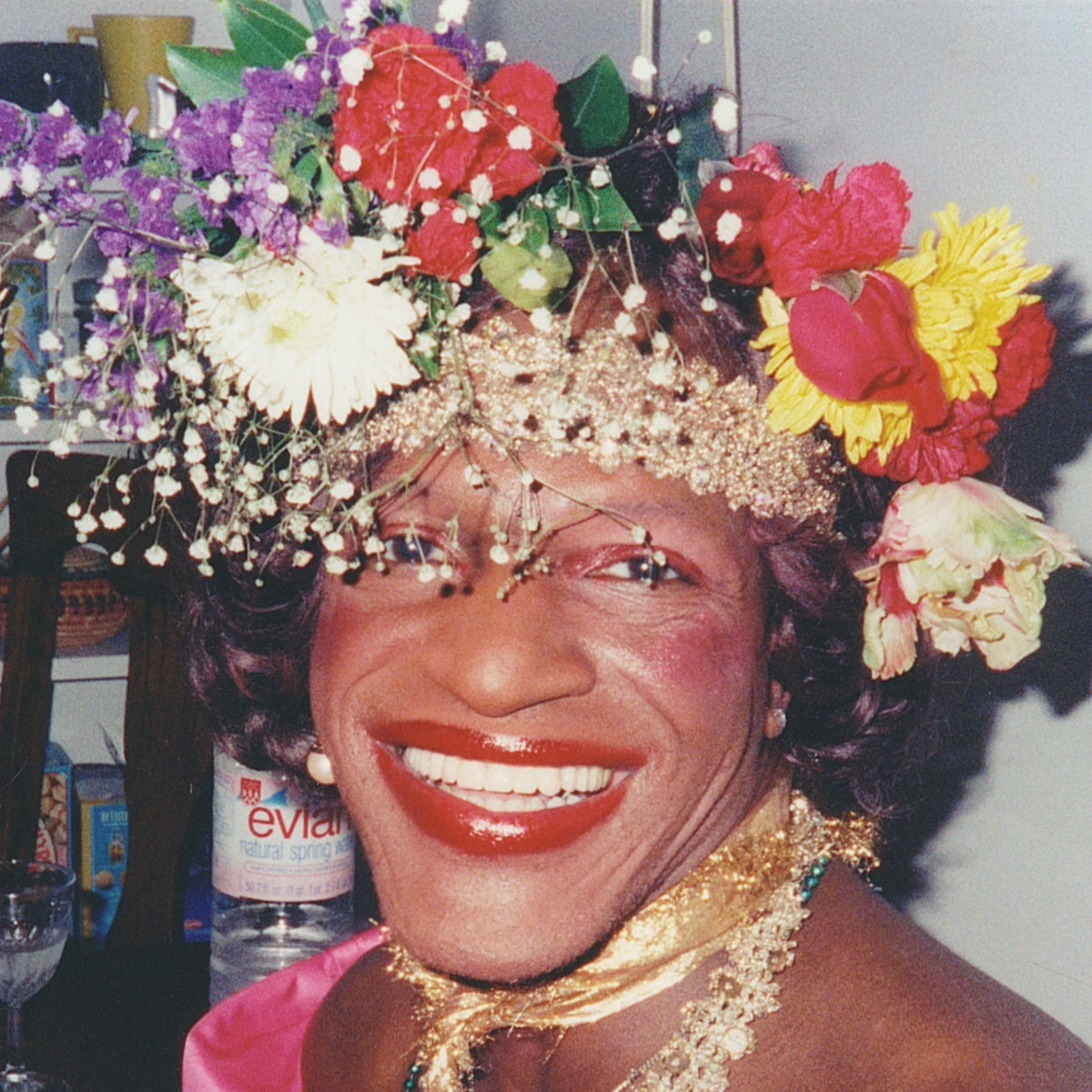 Marsha P. Johnson - Karla Bell, BBA ’22
Marsha P. Johnson - Karla Bell, BBA ’22
Background: Johnson founded the Street Transvestite Action Revolutionaries or STAR; one of the first organizations dedicated to helping homeless young drag queens and trans women of color. She was one of the primary participants in the Stonewall riots of 1969, the catalyst for the gay rights movement in the U.S. and worldwide.
"Marsha Johnson truly impacted me because she showed what it meant to stand your ground in the face of adversity. Many times we view discrimination as a singular issue, but women like Marsha Johnson help me to remember that issues are intersectional and, in order to obtain true liberation, we have to liberate those with the most marginalized identities. Stonewall is often regarded as a major step in LGBTQ+ rights, but people often forget to focus on the Black LGBTQ+ community and their strong impact as they were the most targeted by police." - Karla Bell, BBA ’22
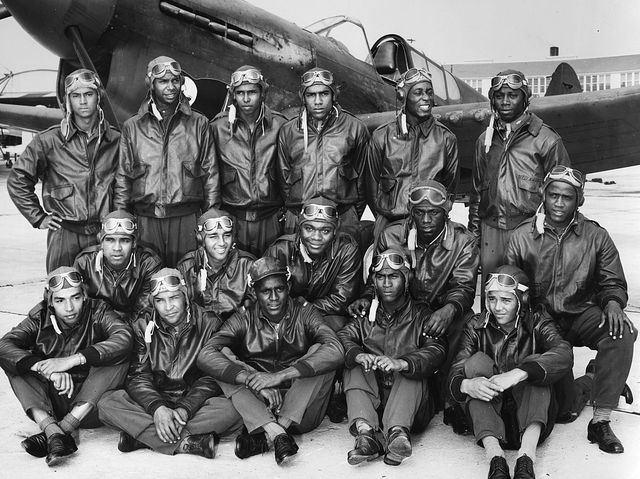 Tuskegee Airmen - - Nisreen Shukairy, BBA ’22
Tuskegee Airmen - - Nisreen Shukairy, BBA ’22
Background: The Tuskegee Airmen were the first African American military aviators in the U.S. Armed Forces, who fought in World War II. Their impressive performance earned them more than 150 Distinguished Flying Crosses, and helped encourage the eventual integration of the U.S. Armed Forces.
“The Tuskegee Airmen fought for the civil rights of others, even as their own were infringed upon in the United States. These trailblazers exceeded expectations while fighting for equality, and serve as an inspiration for us all." - Nisreen Shukairy, BBA ’22
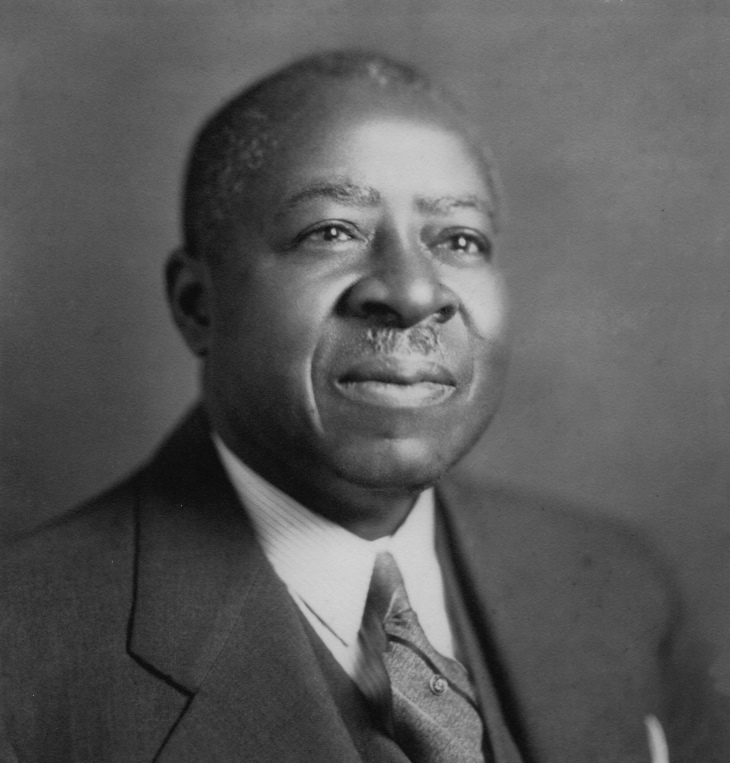 Robert Sengstacke Abbott - Edwin Seide, BBA ’23
Robert Sengstacke Abbott - Edwin Seide, BBA ’23
Background: In 1905, Abbott founded The Chicago Defender newspaper with an initial investment of 25 cents. The newspaper was known as "America's Black Newspaper” and helped encourage Black people to migrate to the North for better socioeconomic opportunities, instead of remaining in the still heavily segregated South.
"Robert’s dedication toward Black excellence and equality for all inspires me to be inclusive and to educate. Through his contributions, I am aware that where I come from demonstrates my passion and thirst for success.” - Edwin Seide, BBA ’23





